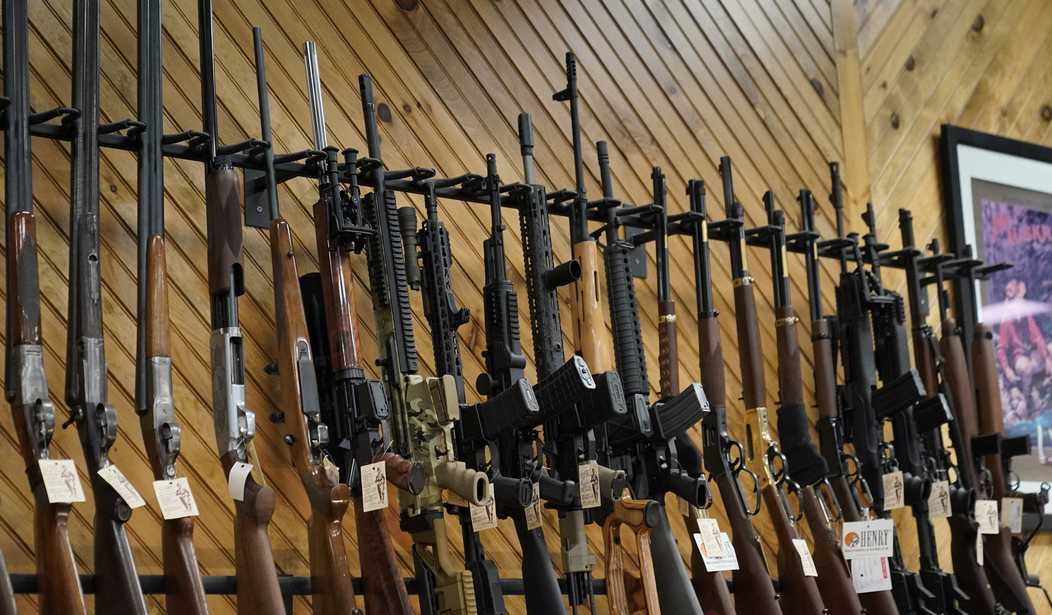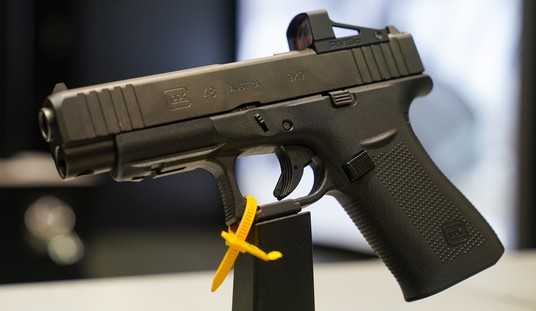When I was growing up, Latin America was mostly known for the drug trade and Marxist guerilla movements--or anti-Marxist guerillas, if we're being honest--seeking to overthrow governments that had overthrown previous governments with the help of the CIA.
It was an...interesting place, at least in my mind--a place filled with danger of various stripes.
And, well, not all that much has changed. It's still a dangerous place in a lot of ways. The source of the danger might have changed somewhat, but it's still a good place to go if you want to risk being shot and killed.
Unsurprisingly, it seems it's all our fault, and no, not because of previous administrations destabilizing the region. It's because criminals break gun laws.
For years, the alarming rise in firearms trafficking from the United States to Latin America and the Caribbean has gone unnoticed. While domestic debates in the U.S. often center on gun control laws and Second Amendment rights, few focus on the ripple effects of weak oversight on the international stage. Yet the impact is painfully clear.
In regions already battling economic inequality, political corruption, and gang violence, the influx of illegal guns has deepened the cycle of instability. Reports reveal a 120% increase in firearm shipments seized in route to these areas since 2016. What is worse, these figures only capture a fraction of the weapons crossing borders successfully. The rest fuel the arsenals of drug cartels, armed militias, and criminal gangs, who use them to terrorize communities and undermine governments.
In Haiti, a country with no domestic firearms industry, the evidence is stark. U.S.-made weapons dominate the illegal market, giving gangs the firepower to hold entire neighborhoods hostage. Recently, gunfire struck U.S.-based airlines flying over Haitian airspace—a chilling example of how far-reaching the problem has become.
This is not just a Caribbean crisis. Across Latin America, U.S.-sourced guns play a significant role in escalating violence. In Mexico, they are the lifeblood of cartels, while in Central America, they fuel migration crises as people flee communities torn apart by armed conflict. In countries like Honduras, El Salvador, and Guatemala, the situation is particularly dire, with U.S. guns contributing significantly to the high homicide rates.
Yeah, we've heard this before.
Now, the author articulates that the Second Amendment does preserve our right to keep and bear arms, which is good, but then we get to all of this:
This discussion is old, yet worth mentioning again. The Second Amendment of the U.S. Constitution gives the right to own weapons. This fact is clear. It is not just a matter of citizens and their rights about keeping weapons out of the hands of people who use them to destabilize entire nations.
In the Caribbean, 73% of firearms recovered between 2018 and 2023 were traced back to the United States. These weapons account for up to 90% of homicides in some nations. The path they take is alarmingly simple: high-capacity rifles and magazines are purchased legally in states like Florida, Texas, and Georgia and then smuggled across borders. Traffickers exploit loopholes, weak enforcement, and insufficient oversight to supply the illegal market with tools of violence.
Now, I'll give them weak enforcement. The ATF, which should probably team up with Customs to try and prevent illicit exports of firearms, isn't really doing all that much on that front. Instead, they're trying to jam up lawful gun dealers over paperwork efforts. On that one, they might have a point.
The rest, however, are your typical talking points with no basis in reality.
Criminals here get guns through illegal means. No one is willingly selling guns to criminals, either for domestic use or international criminal endeavors. Most of these guns are likely stolen from their original owners or the gun stores themselves, then shipped to wherever there's a demand.
But that's the thing all of this always ignores: The Demand.
If large numbers of guns could be shipped to the Caribbean, they could be shipped to, say, Europe. Some undoubtedly are, even. However, what we don't see is the same level of violence reported in Latin America and the Caribbean.
Why is that?
Well, the keyword above is "demand."
See, all of these places have a large demand and people with the resources to obtain firearms. Much like there were in the 1980s, really. People who want guns and are willing to pay for it. Large criminal elements are running around these countries and they're going to get firearms no matter what.
Now, I'm not saying we shouldn't worry about illegal exports. What I am saying, though, is that the issues in these countries have little to do with guns. It has to do with corruption, poverty, poor education, poor opportunities, and a host of other, deeper issues.
Address those and you might actually see some changes without anything happening here in the United States.
If you don't address those, you're never going to see changes no matter what happens here.








